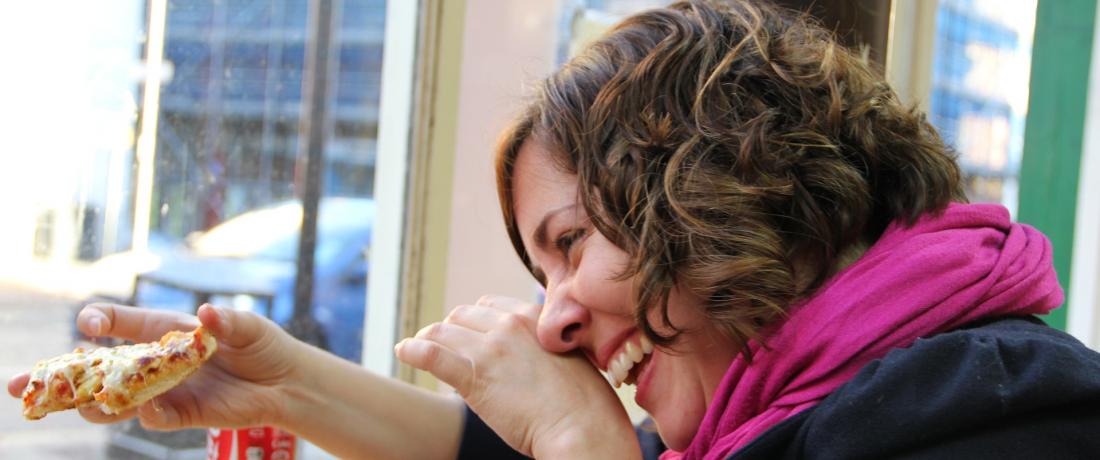
People love funny commercials. Done properly, humorous adverts soon become viral, which multiplies brand recognition. However, client entertaining is no easier than pitching. One unwary move might take you on a sticky ground, since there is a thin line between hilarious and obnoxious.
For that reason, experts debate over the advisability of humorous campaigns. Opinions are as different as such:
>“There are two things about which men should not joke. One is business, one is home. An eccentric picture may do you serious damage. One may gain attention by wearing a fools cap. But he would ruin his selling prospects.”
Claude Hopkins“Avoid humor. You can entertain a million people and not sell one of them. There is not a single humorous line in two of the most influential books in the world, namely, the Bible and the Sears Roebuck catalog.”
John Caples“Ignore those snobs who say humor has no place in sales and marketing, that prospects don’t buy from clowns, or you should never poke fun at your own brand. They do not understand the likeability factor of humor.”
CBSnews.comEach side has a point. On the one hand, humor adds a “human” note to your offer, which makes prospects open to be involved; on the other hand, it might seem inappropriate to either a product or a potential customer. Jokes you consider as funny can leave a bad taste in another’s mouth and be banned for sexism, ageism, lookism or whatever animadvert-ism.
Therefore, the key to a successful humorous campaign is relevance. The best products to promote through drollery are food, alcohol, toys, hygiene means – simple, inexpensive and often consumable. They don’t require detailed representation, so there is enough room for humor. Need an example? Enjoy!
To Kill A MockingbirdSome years ago, Bodyform, a British brand selling pads and panty liners, got a Facebook comment from Richard Neill:
“Hi, as a man I must ask why you have lied to us for all these years. As a child I watched your advertisements with interest as to how at this wonderful time of the month that the female gets to enjoy so many things, I felt a little jealous. I mean bike riding, rollercoasters, dancing, parachuting, why couldn’t I get to enjoy this time of joy and ‘blue water’ and wings !! Dam my penis!! Then I got a girlfriend, was so happy and couldn’t wait for this joyous adventurous time of the month to happen… you lied !! There was no joy, no extreme sports, no blue water spilling over wings and no rocking soundtrack oh no no no. Instead I had to fight against every male urge I had to resist screaming wooaaahhhhh bodddyyyyyyfooorrrmmm bodyformed for youuuuuuu as my lady changed from the loving, gentle, normal skin coloured lady to the little girl from the exorcist with added venom and extra 360 degree head spin. Thanks for setting me up for a fall bodyform, you crafty bugger.”
A perfect sense of tact has resulted in almost 6 million view. Isn’t that impressive?
Why So Serious?Nespresso, a famous coffee brand, combined humor with celebrity endorsement. The campaign featured George Clooney, John Malkovich and Danny DeVito who are all known for their self-irony. It’s no wonder those commercials have caused a furor. This one is our favorite:
Competing GiantsDollar Shave Club didn’t have Nespresso’s budgets. But they did have enough wit to compete Goliath. While Wilkinson and Gillette were using serious tone, Dollar Shave Club decided to dwell on humor and make people fall in love with the dullest product ever. And it worked! 25 million views. Period.
Wide of The MarkHowever, sometimes humor “kills the message”. Laughing doesn’t go well with certain topics, e.g., healthcare, gender equality or road safety. Alana Hawkings from Queensland University of Technology has recently represented a study showing that humor advertising is not effective for preventing driver sleepiness.
QUT’s team asked 10 Australian drivers to watch a viral YouTube video made in Korea:
An animated advert depicts human-like critters who one by one fall asleep in a car. Eventually the driver dozes off too, and the vehicle crashes down a cliff. Everyone rolls and droops to cheerful music.
According to Alana Hawkings, participants’ general feeling was “that this light-hearted approach was inappropriate for the subject." What does it mean for business? Though non-traditional media are less censored than TV, radio or newspapers, one should still be cautious with frivolity in advertising. Even on Facebook, YouTube or Instagram. Otherwise, your ad may evoke irritation instead of laughter.
SummaryHumor is a powerful marketing tool. It surely improves brand awareness but doesn’t necessarily affect purchase behavior. Humorous campaigns require creativity and variety, as people quickly get bored of same jokes. On the other hand, you don’t need much money to shoot a funny commercial if its concept is hilarious but not offensive. So every joke should be first represented to a focus group (wider that your family, friends and subordinates).
What are your thoughts? Do you like funny commercials? Are there any favorites? Feel free to share them in comments. The Loupe is always in a mood for LOL chatting :)